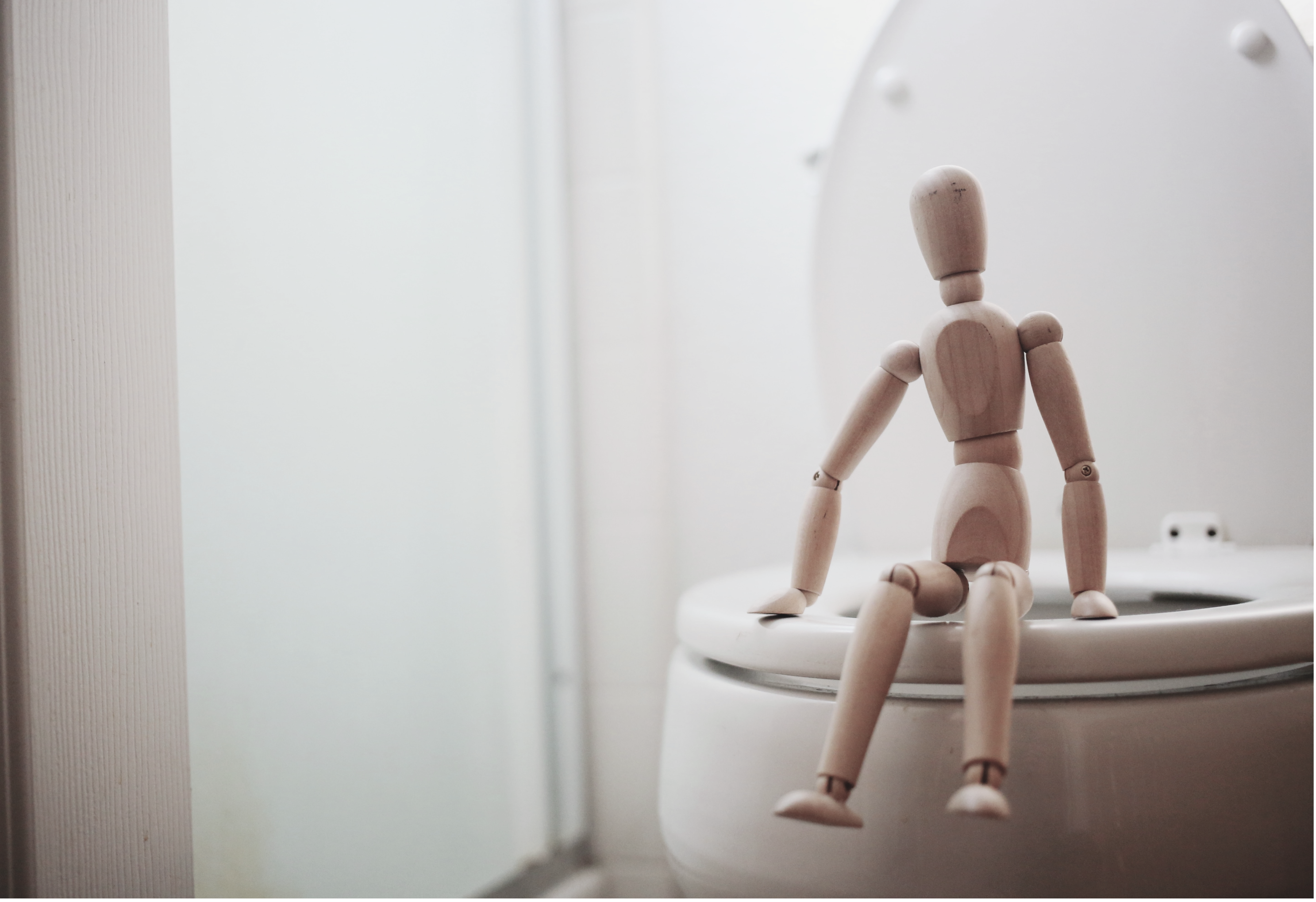Have you ever gotten up too fast and felt dizzy for a second? That’s your body telling you it needs more iron.
Now, I’m not saying that you for certain have iron deficiency or anemia simply because you got up one time and felt dizzy, but that’s actually a key indication of low iron levels: especially if it’s a regular occurrence.
Iron deficiency is surprisingly not uncommon, and many Americans suffer in silence. What I mean by that is they have no idea that their iron levels are low. But low iron can have such a major impact on your body, your focus, your digestion, and more.
And so even if it’s a minor case of iron deficiency, you may have symptoms like fatigue and exhaustion that are indirectly impacting your quality of life, and that you’ve either brushed off or attributed to something else entirely.
So, here’s how you can tell if you need more iron in your diet. Of course, these are just common symptoms associated with iron deficiency, and I always recommend that you consult with your physician in order to get a proper diagnosis.
1. You Randomly Feel Lightheaded or Dizzy
I have a colleague I work with that sometimes turns around too quickly and starts to feel dizzy, or gets up from her desk, and has to stop for a second because she feels lightheaded.
I’m sure many of you have experienced something similar as well. Maybe you were sitting or kneeling for a while, and finally when you stand up the room just starts spinning.
And while this is a natural reaction, if it’s constant and recurring - such as with the case of my colleague - then that may be a symptom of iron deficiency.
Why does this happen, and is it a concern? Well, Iron is needed in order to produce hemoglobin - the part of your red blood cells that carry oxygen to the brain and remove carbon dioxide from the body. This not only leaves you feeling tired and short of breath but can also lead to feeling lightheaded and dizzy.
2. You’re Tired All The Time
This is actually one of the key signs that your body isn’t getting enough iron. As I mentioned, a lack of iron means insufficient production of hemoglobin, which means your cells aren’t doing a great job at carrying oxygen and delivering to the brain. So, the result is exhaustion.
Unfortunately, though this is the most common symptom of iron deficiency, it’s also the one that goes most unnoticed. It’s easy to say “oh…I just felt dizzy for the 10th time today. Something is not right.” But, with constant stress from work and home life, lack of adequate sleep, and just being on the go all the time, we’re exhausted…all the time. So, to attribute this to your lifestyle is much easier and makes more sense than thinking you need more iron.
So how do you know if its life making you tired, or if it’s a lack of iron? Well first of all, try to lower your stress levels and improve your sleep habits regardless. It’s not healthy for you anyway, so try to work on that as much as possible! And if you do, and yet still feel tired, then that’s a sign of a deeper problem.
The other key factor to consider is that iron deficiency normally comes with more than one symptom. So if you’re tired as well as facing one or more of the symptoms outlined here, then low iron levels may be the cause.
3. You’re Easily Short of Breath
Not to sound like a broken record, but when your body needs iron, it’s having trouble moving oxygen to where it’s needed. So yes, shortness of breath is a key symptom, and one that shouldn’t be ignored.
If you feel like your endurance is slipping or getting worse despite regular activity and exercise, then definitely look into iron deficiency as a possible cause. Of course, I always recommend consulting your physician if you’re worried about underlying issues such as iron deficiency and anemia.
4. You’re Cold When You Shouldn’t Be
Do you know that one person who’s always cold all the time, no matter what? They’d be sitting at a restaurant with a winter parka on because they just can’t handle how cold it is. That feeling of constantly being cold can be another major sign of anemia and iron deficiency. This is actually because a lack of iron hinders your thyroid's ability to produce hormones needed to regulate your body’s temperature.
Other Signs of Iron Deficiency
The above listed are probably some of the most common and noticeable signs of iron deficiency, but here are a few other things you should keep an eye out for if you fear that your iron levels may be slightly lower than normal:
- Bruising
- Pale Skin
- Chronic Headaches
- Brittle Nails
- Inflammation of the Tongue
- Poor appetite (especially with anemia)
- Irritability
- Celiac disease or IBD
Chronic Headaches
Everyone has had a headache before, sometimes they can be so bad that they knock us out of commission for the day. Chronic headaches are headaches that have become a common occurrence throughout the course of a few months, sometimes years. If you're experiencing chronic headaches, you should seek medical attention immediately, especially if these headaches occur frequently and are very debilitating. Chronic headaches can be caused by a variety of reasons including stress, lack of sleep and certain medications; however, one of the most common causes for this type of headache is an iron deficiency. The reason for this is that our bodies use iron as part of the metabolic process of creating nitric oxide, which helps dilate blood vessels and perform nerve functions. A side effect of an iron deficiency is having low nitric oxide levels which causes more capillaries and capillary beds to become narrow and closed off. If there is no blood flow going through your brain tissues and arteries this causes us to experience painful headaches due to the overcompensation the body makes in order to get more nutrition. So if you've noticed that you're experiencing headaches on a regular basis, see your doctor about getting your iron levels checked!
In summary, if you've experienced any of the above symptoms, especially if it's been over a period of time, it's important that you speak to your doctor about them. You can request that your iron levels be measured, or request to be tested for anemia.
Supplementing with iron can be a convenient way to get more iron into your system if adding iron to your diet is challenging. If you do decide to supplement, it’s important to work with your doctor to figure out how much iron you should take. And you should also check to see if there are any drug interactions that might occur if you take medications.
Iron deficiency is not uncommon, and many Americans live with low iron levels without even knowing. They suffer in silence, constantly feeling tired, and even irritated and dizzy. Things like that can really impact your way of life, and so it’s better to find out what the root cause is rather than suffering in silence. So, if you fear that you may have low levels of iron, here are a few common symptoms of iron deficiency. Of course, if this is something you think you have, you should consult your physician for proper diagnosis, and have your iron levels checked.



















Dr. Mallory Blair is the co-founder and CEO of 2x4 Nutrition. She has a Ph.D. in analytical chemistry, a master’s degree in bio analytical chemistry, and over a decade of experience in researching and manufacturing Liposomal supplements.